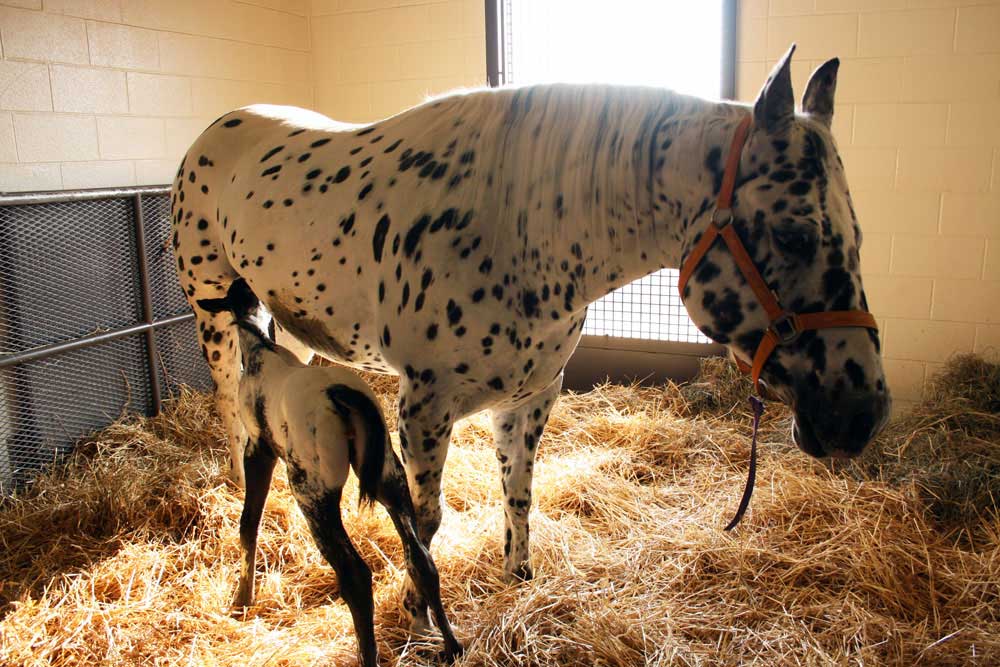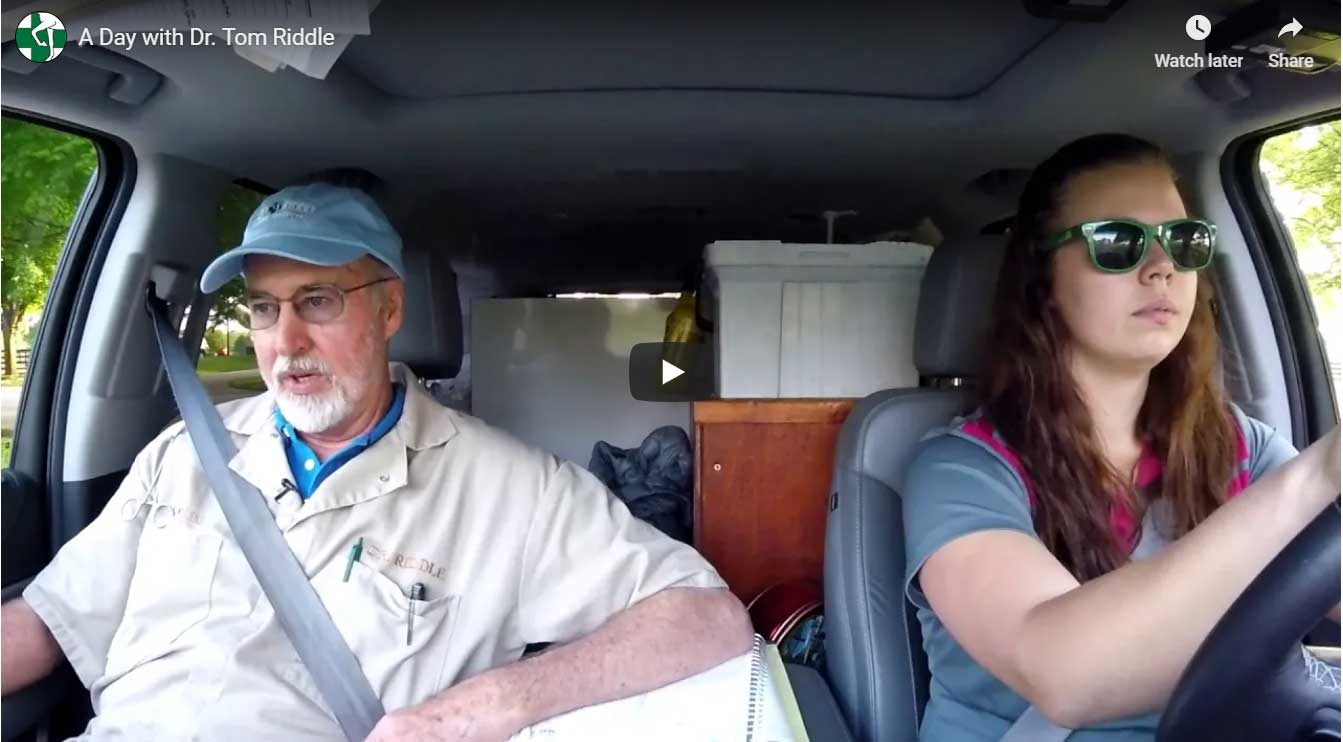
by Dr. Tom Riddle of Rood & Riddle
This is the time of year when a lot of mares are being bred and some mares have already been identified as “problems”. Before you start looking for the difficult explanations for infertility, my advice is to first make sure that all conditions are as “normal” as possible.
First, you want to make sure that the mare is as healthy as she can be. Your veterinarian should evaluate the mare’s physical condition and determine if there are any problems that could divert “energy” away from the reproductive tract. Abnormalities such as lamenesses, painful eyes, dental disease, weight issues and endocrine disorders should be identified and, if possible, corrected. One of my mentors always preached “Reproduction is a luxury. If the mare is diverting energy to a problem in another body system, she is very unlikely to get in foal.”
Next, you want to make sure that the mare is receiving proper nutrition, both what you are providing to her (hay and grain) and her pasture. Most feed companies employ a nutritionist who can evaluate your feed program. You will also need to analyze the pasture, which is a very common source of issues. Many states have extension agents who do an excellent job evaluating pastures. In many areas mares receive a large percentage of their nutrients from their grazing, so a good pasture is critical for successful reproduction. Remember that pastures change with the seasons.
Another very important consideration is the stallion’s fertility. It is obviously essential that the semen the mare is receiving is from a stallion that is known to be settling his mares. If there is any question as to the stallion’s status, a good investigation is warranted.
Finally, the ultimate basic to cover, you must breed a clean, healthy mare with a good follicle to a fertile stallion and get a timely ovulation. Good luck to you!
About the Author

Tom Riddle, the son of a veterinarian, was born and raised in Greenville, S.C., and graduated from Wake Forest University in 1974 and the University of Georgia College of Veterinary Medicine in 1978. After graduation from veterinary school, he traveled to Lexington, Ky. to serve an internship with Dr. Don Witherspoon at Leslie Combs' Spendthrift Farm. Following his internship, he spent another three years working at Spendthrift, which was at the top of its game in the late 70's and early 80's.
In 1982, Riddle joined Bill Rood in his ambulatory practice in Lexington and Rood & Riddle was formed. In 1985, Rood & Riddle purchased land on Georgetown Road and broke ground for their new hospital.
Riddle has served as president of the Kentucky Association of Equine Practitioners, the Society for Theriogenology and the Theriogenology Foundation.
He received the Steiner Award for Excellence in the Practice of Theriogenology and he is an honorary member of the American College of Theriogenologists.
Riddle was the first person to recognize and report the 2001 abortion outbreak which became known as Mare Reproduction Loss Syndrome. Clinically, he has special interests in uterine culture and cytology, early twin management, fetal sexing, and diagnostic ultrasound of the mare’s reproductive tract.
Riddle currently has a busy breeding farm practice in Central Kentucky and serves as Director of Public Relations for Rood & Riddle.
Riddle is married to lifelong horsewoman, Margaret Alexander Riddle, and together they have three children,
Find more valuable information and articles in our Veterinary and Health & Education sections.


































